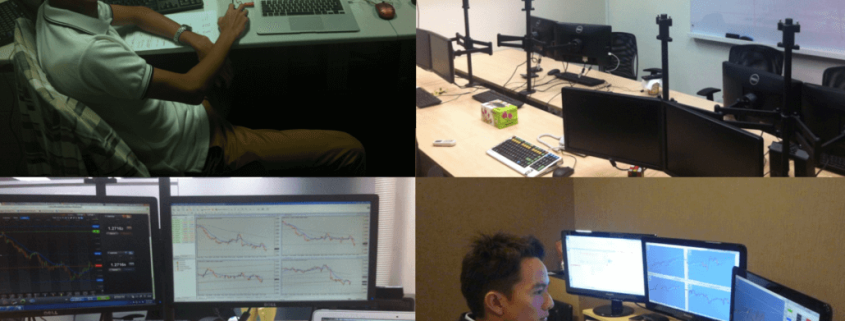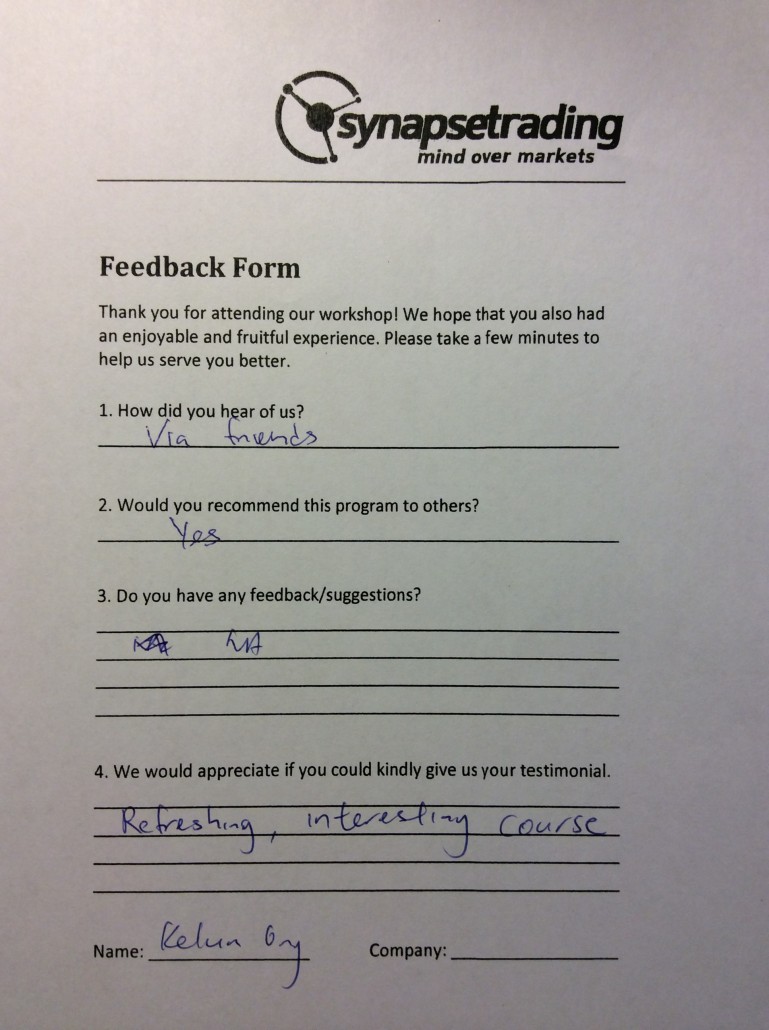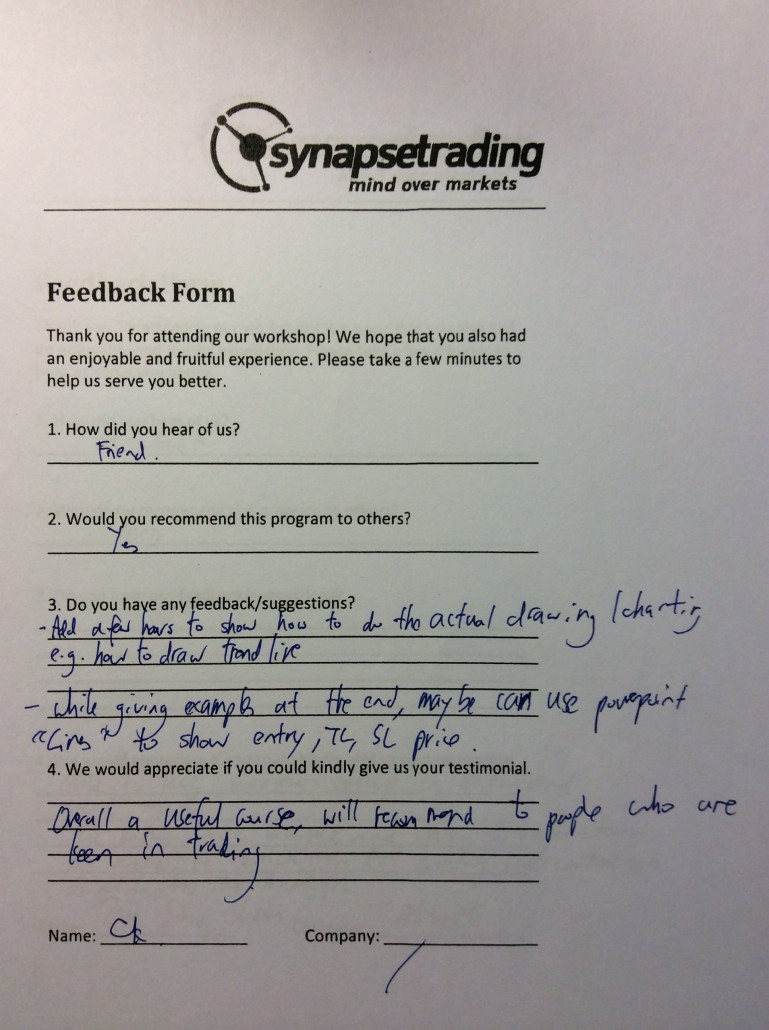Career Paths for the Trading & Fund Management Professional
Join our Telegram channel for more market analysis & trading tips: t.me/synapsetrading
Here are a list of common career paths in trading, with each requiring different skill sets. When you send in your applications, it would be good to indicate what kind of career path you are looking for, so that it would be easier to find a good match. We are always on the lookout for trading job opportunities offered by our partners, and we will send in our database of resumes submitted by our students, hence it would be a good idea to send yours in early too. 🙂
Sales & Trading (S&T)
This highly paid and highly coveted position is usually offered by investment banks, but are hard to come by, especially given the freeze in global headcount for most front office roles. Typically, the basic requirements would be a degree, as well as stellar academic achievements. Previous experience working in a bank would also improve your chances.
“Sales and trading is one of the key functions of an investment bank. The term refers to the various activities relating to the buying and selling of securities or other financial instruments. Typically an investment bank will perform these tasks on behalf of itself and its clients. In market making, traders will buy and sell financial products primarily to facilitate the investment and trading activities of its clients with the goal of making an incremental amount of money on each trade. The Sales component refers to the investment bank’s sales force, whose primary job is to call on institutional and high-net-worth investors to suggest trading ideas and take orders. Sales desks then communicate their clients’ orders to the appropriate trading desks, who can price and execute trades, or structure new products that fit a specific need.” – Wikipedia
Proprietary Trading
In the past, most banks used to have this job function, but the number has been on the decline. Nowadays, most of the hiring comes from private funds (prop funds). Typically, these funds hire experienced traders to trade the firm’s funds, but usually has training programs to train new traders to groom them into successful traders. The selection is stringent, and the turnover rate is high, as it is not an easy environment to thrive in. Usually, remuneration is on a profit-sharing basis (ranging from 30-80%), with a small allowance, so one should have at least a year of savings to live on during the learning phase. Strategies vary, but most involve high-frequency trading on short timeframes, with high-leverage products such as futures and options.
“Proprietary trading (also “prop trading” or PPT) occurs when a firm trades stocks, bonds, currencies, commodities, their derivatives, or other financial instruments, with the firm’s own money as opposed to its customers’ money, so as to make a profit for itself. They may use a variety of strategies such as index arbitrage, statistical arbitrage, merger arbitrage, fundamental analysis, volatility arbitrage or global macro trading, much like a hedge fund.” – Wikipedia
Fund Management
Fund management typically requires more experience and a track record, and traders are expected to have an advanced knowledge of trading. Products can vary widely, and strategies and usually flexible, depending on the discretion given by the fund. Given the larger capital base, strategies may be geared towards a longer holding period. Typically, there will be some sort of benchmark and drawdown limits, and remuneration is a combination of a base salary (management fee) and profit-sharing.
“A hedge fund is an investment fund that can undertake a wider range of investment and trading activities than other funds, but which is generally only open to certain types of investors specified by regulators. These investors are typically institutions, such as pension funds, university endowments and foundations, or high-net-worth individuals, who are considered to have the knowledge or resources to understand the nature of the funds. As a class, hedge funds invest in a diverse range of assets, but they most commonly trade liquid securities on public markets. They also employ a wide variety of investment strategies, and make use of techniques such as short selling and leverage.” – Wikipedia
Research Analyst
These jobs are offered by banks and brokerage firms, as well as some independent research houses. These jobs are suitable for those who have good analytical and writing skills, and enjoy doing research and analysis, but do not like the stress of executing trades and holding positions. Depending on the level of experience, these jobs are usually paid quite well at banks and financial institutions.
“A financial analyst, securities analyst, research analyst, equity analyst, or investment analyst is a person who performs financial analysis for external or internal clients as a core part of the job. Writing reports or notes expressing opinions is always a part of “sell-side” (brokerage) analyst job and is often not required for “buy-side” (investment firms) analysts. Traditionally, analysts use fundamental analysis principles but technical chart analysis and tactical evaluation of the market environment are also routine. Often at the end of the assessment of analyzed securities, an analyst would provide a rating recommending an investment action, e.g. to buy, sell, or hold the security.” – Wikipedia
Brokerage & Dealing
These jobs come in various forms, including working as an in-house dealer for a retail brokerage or an institutional brokerage, or an independent remisier. These jobs require less analysis and trading skills, since you will be mainly executing orders for clients, although clients may rely on your input to make their decisions. Remuneration is typically a base salary plus a sales commission if certain targets are met.
“A brokerage firm, or simply brokerage, is a financial institution that facilitates the buying and selling of financial securities between a buyer and a seller. Brokerage firms serve a clientele of investors who trade public stocks and other securities, usually through the firm’s agent stockbrokers. A traditional, or “full service”, brokerage firm usually undertakes more than simply carrying out a stock or bond trade. The staff of this type of brokerage firm is entrusted with the responsibility of researching the markets to provide appropriate recommendations and in so doing they direct the actions of pension fund managers and portfolio managers alike.” – Wikipedia
 Our flagship mentoring program is suitable for both beginners and advanced traders, covering the 4 strategies which I used over the past 15 years to build up my 7-figure personal trading portfolio.
Our flagship mentoring program is suitable for both beginners and advanced traders, covering the 4 strategies which I used over the past 15 years to build up my 7-figure personal trading portfolio.
 If you're looking for a reputable brokerage that covers all products (SG stocks, US stocks, global stocks, bonds, ETFs, REITs, forex, futures, crypto) and has one of the lowest commissions, this is what I currently use.
If you're looking for a reputable brokerage that covers all products (SG stocks, US stocks, global stocks, bonds, ETFs, REITs, forex, futures, crypto) and has one of the lowest commissions, this is what I currently use.
After trading for 18 years, reading 1500+ books, and mentoring 1000+ traders, I specialise in helping people improve their trading results, by using tested trading strategies, and making better decisions via decision science.










Leave a Reply
Want to join the discussion?Feel free to contribute!